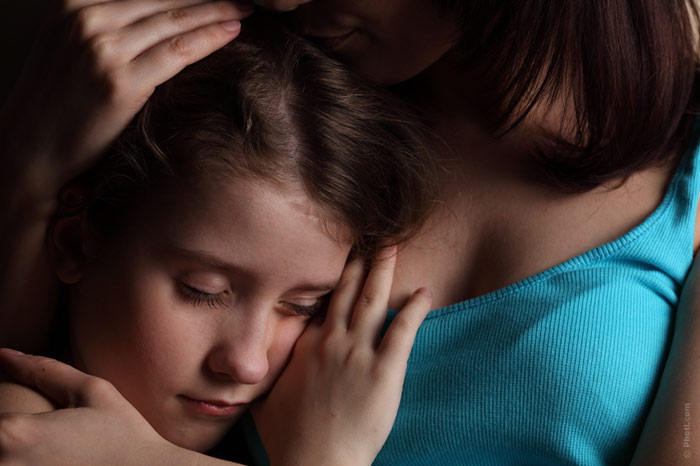How to Explain Death to Kids
That is one of the things that we rather wouldn’t do, probably because we shy away from the subject ourselves – or we don’t quite know how to set about it. Well, there are times when we can’t very well escape. Our children need to be talked to, helped to understand and cope. If you need some guidelines to be able to tackle it, here goes.
When do kids begin to understand what death is?
Strangely enough, children can grasp the meaning of death at a very early age, at least the physical aspect of it. They understand loss (in terms of a person, a voice or a face), and the younger they are, the more acutely they feel it. It doesn’t produce a conscious sensation, but the body can feel a loss. When a baby has its mother taken away, they won’t be able to recognize her later, but some “memories” will stay – like touches, the scent, some other physical sensations.
On turning 3 and older, children’s experience with loss deepens and widens: they lose toys, they are left at the crèche by their parents, and so on. They feel abandoned. Therefore, when they come across death later, they are able to take in its reality. For many children realization that Santa Claus doesn’t exist is one of the first experiences of loss.
What answers can you give when your child asks you about death?
Questions about death tend to come out of the blue when you least expect them. Still, they are important (carrying an existential significance), and they had better be answered. If you feel the child is too young, you can fall back on old clichés like “go to Heaven” or “go away on a journey,” but they are neither illuminating nor satisfactory. The best way is to give an open and simple explanation.
It’s not advisable to lie the death away telling that the dead person will come back so as to placate the child. On the contrary, have your kid accept the hard truth that they will see their loved relative no more. Help them to live down the understanding. You can tell what you believe in if questioned what happens to people after death; it’s quite all right to answer that you don’t know. The child will begin to ruminate and seek answers of his own.
How to break news of a person’s death to a child?
When a person your child knows dies, it’s preferable to inform the child about it as soon as possible – and in the case of an expected death, to prepare them well in advance. It would be far better than to wait until the child gets round to asking difficult questions about the diseased. Tell them in a quiet manner that the person in question is gone and isn’t coming back. If you feel it too deeply, there’s no need to conceal it from the child: tell them you’re grieving and are not ready to discuss it right now. They will be able to understand you and sympathize with you. Avoid lying, for eventually it will turn out to be confusing and upsetting. Tell them that, although you can’t bring the person back, he or she will stay in your hearts, and you can think together of a suitable reminder like a photo or some kind of tribute.
Should you take your child along to the funeral?
The prevalent idea says that attending the funeral can help the child take in the sad event better and observe how people behave and share condolences. They will imbibe the atmosphere of the ritual, grieve with others and derive some comfort in the process. They will be able to say good-bye in the most proper fashion, and probably put some small thing in the casket as a token of their feelings. Also, they will acquire memories of the person dear to them.
Can you help the child to get over a death?
Children can harbor feelings that would seem illogical to us, like those of guilt and responsibility for the person’s dying. It can be the result of their having been angry with the person and wishing them ill, or their inability to show love to the person when they were alive. You should voice them on the subject and explain that bad thoughts never produce this kind of effect and there’s no need to feel guilt.
In some cases the child may start behaving like a baby, clamoring for attention and physical contact. It usually means that the little one is failing to understand the event and grieve properly. Should this happen, don’t leave the child to cope alone. Let him or her come to you whenever they feel like it and show that you are ready to share their emotions. Stay with them, cuddling them or doing something to distract them. Maybe it’s a good idea to take them to the grave and pay homage to the dead one.
What to do if the child refuses to be placated or acts up
There are signs that the child requires professional help to live down the death. When he or she gets aggressive, feigns indifference, gets away from people, develops sleeping problems, and can’t snap out of it, it can indicate a mental block that shuts off any normal display of emotions. It looks like a task for a psychotherapist to tackle.

